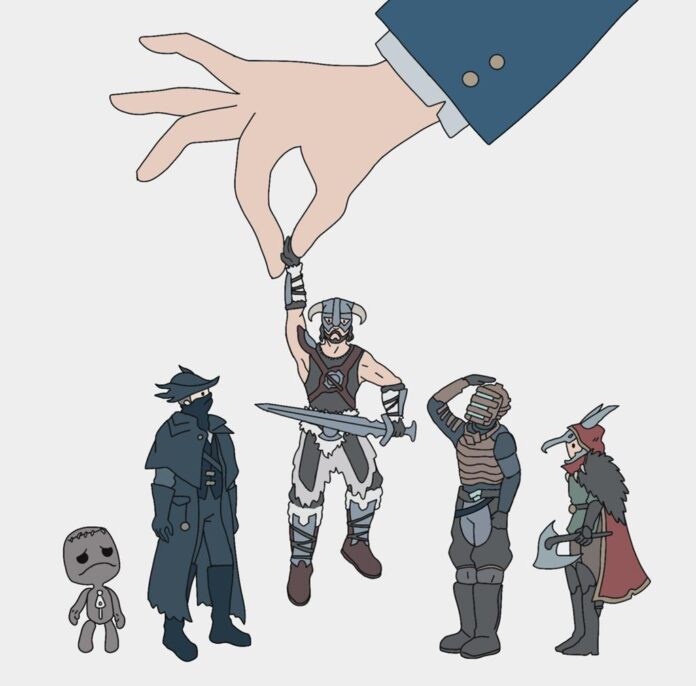Imagine this: it’s evening and you are done with all your work and chores for the day. You crash into your favourite seat to unwind and play video games. As you load up your game library, you think about what to play. A story-rich game about unlikely heroes? A quaint card game with a silly name and constant little hits of dopamine? Or maybe you’ll replay a game that you love! Next thing you know, it is time for bed. You just tirelessly scrolled your entire gaming library, asking yourself “what do I want to play?” until you needed to go to sleep.
The gaming industry is in trouble for a lot of reasons, made clear by underwhelming game releases, game shutdowns, development cancellations, studio closures, and lay-offs. But what can we do? We are just consumers, tiny cogs in the giant machine that is video game entertainment!
Well, my fellow cog, we do what we always do: vote with our money, time, attention, love, and enjoyment. The gaming industry is going through a massive change, and we will have to ride out the storm until developers figure it out.
Large developers are doing what they’ve done in the past and are expecting the same results as before — but it is not working. Sometimes they misread the market significantly: Sony spent eight years and 400-million dollars on Concord (2024) only to take it offline after two weeks. Other times developers stick to taking safe bets by recycling ideas and franchises, such as the release of a disastrous “remastered” version of a nine-year-old game (2015’s Until Dawn). Other developers add microtransactions and lean into subscription services to keep cash flowing. I don’t think I need a microtransaction system in my copy of NHL 25 (2024).
Generally, most of the big developers are focused on delivering an expansive, technologically cutting edge game and fixated on the money part of it instead of releasing an enjoyable, creative, or engaging game. “B-but the stakeholders!” some office worker in a suit shrieks. While I can respect the needs of stakeholders and investors from a business angle, there is a balance to be had between deliverables for the balance sheets and the final product for the consumers. Nintendo is a good example of releasing technologically unimpressive games on outdated hardware while still delivering some of the most enjoyment! This also creates a space for other developers to forego technologically advanced games in favour of something that is progressive in a different way.
Due to the changing gaming industry, there is space for new and smaller developers. Part of the trouble for big developers are small indie developers who are able to deliver games faster and cheaper while leaning into creativity and niche genres like escape rooms. Since platforms like Steam and mobile app stores entered the gaming market, it has never been easier to start making and selling games. Not all games make it, but when an indie game does, it takes part of the pie away from the large developers — and makes them nervous. This contributes significantly to the struggle that games face as they compete for attention in a saturated market.
For consumers, possibly the biggest issue is the sheer volume of new games being released every week, especially during the holiday season. Most gamers can relate to having a backlog of games they’ve already paid for but have not yet played. Consumers only have so much time, money, or energy to give while games of every kind have to fight for attention.
Some parts of this massive evolution in the industry are disheartening, like hearing about talented people getting fired or projects that sound cool but get cancelled. Having a game you are interested in finally get released only to have it perform poorly, lose developer support, and die off prematurely is not good for anyone. And hearing that a Microsoft CEO got a 30 million dollar raise despite the multiple Microsoft studio closures and waves of lay-offs is the worst.
This holiday season, I call on you, cogs in the machine, to vote with your money, time, attention, and love. Game developers, both big and small, will figure it out the hard way. If the gaming industry is a car, it has run out of gas and probably has a few flat tires. Ultimately, we can’t fix that; the developers have to. All we can do is have faith that creativity and love for the media will make it through this turbulence. In the meantime, hopefully something actually fun pops up once in a while so we can all enjoy it. Good luck and have fun.


